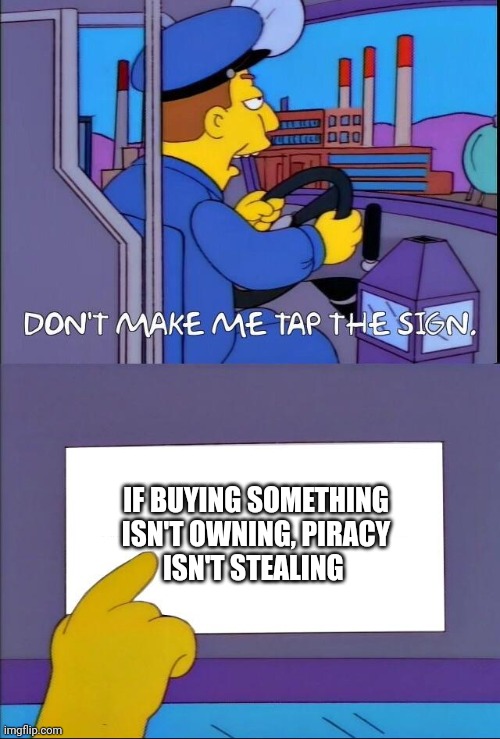this post was submitted on 02 Feb 2024
1365 points (95.6% liked)
memes
10322 readers
2198 users here now
Community rules
1. Be civil
No trolling, bigotry or other insulting / annoying behaviour
2. No politics
This is non-politics community. For political memes please go to !politicalmemes@lemmy.world
3. No recent reposts
Check for reposts when posting a meme, you can only repost after 1 month
4. No bots
No bots without the express approval of the mods or the admins
5. No Spam/Ads
No advertisements or spam. This is an instance rule and the only way to live.
Sister communities
- !tenforward@lemmy.world : Star Trek memes, chat and shitposts
- !lemmyshitpost@lemmy.world : Lemmy Shitposts, anything and everything goes.
- !linuxmemes@lemmy.world : Linux themed memes
- !comicstrips@lemmy.world : for those who love comic stories.
founded 1 year ago
MODERATORS
you are viewing a single comment's thread
view the rest of the comments
view the rest of the comments

It’s worth stating this has basically always been true for books. You can buy paper. Buying bound paper with words on it is not quite the same. You can’t produce a movie from that idea, and state “I invented this idea from a bundle of bound pages I bought, that already had some words on them.”
You never owned the original reproduction rights to the book’s content. That never mattered much until copying and pasting became so easy.
Huh. Never quite looked at it that way, but you are right. I can see how physical book is a form of a license to read a literary work. It is however naturally impossible to revoke. It would be the same if digital content had no DRM - which is generally not the case.
So I guess DRM and you not being able to download and use content outside the company's ecosystem is the real issue here.